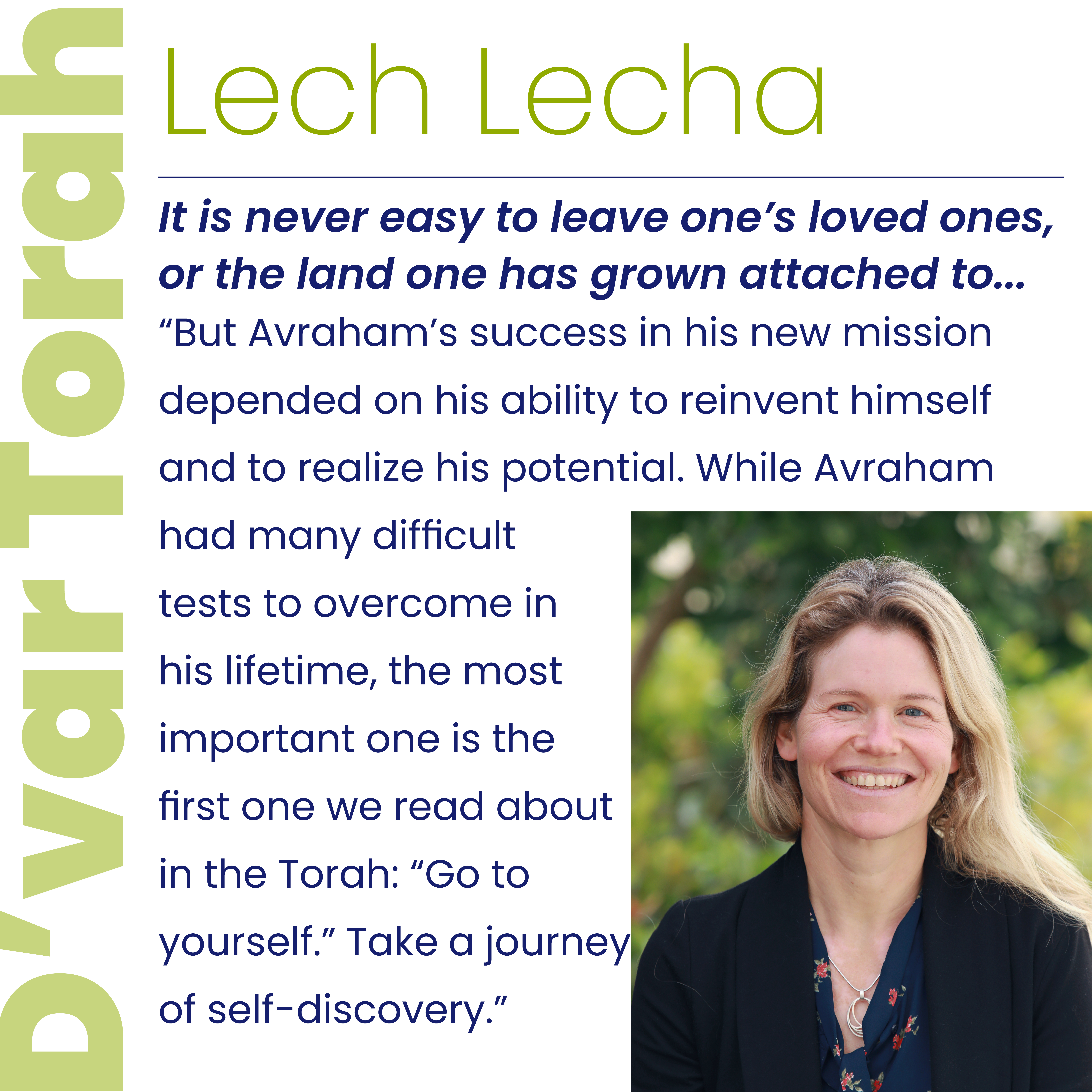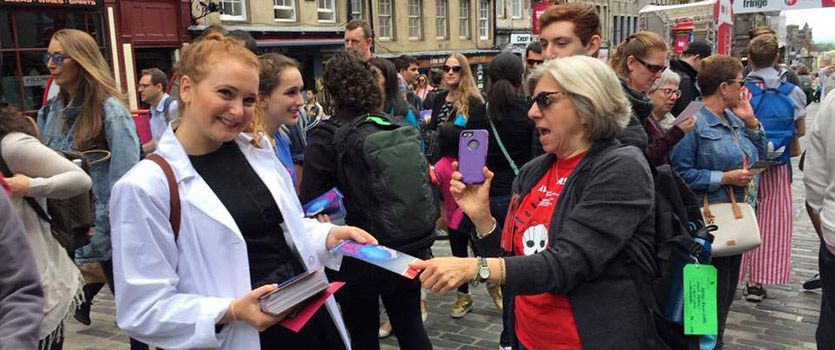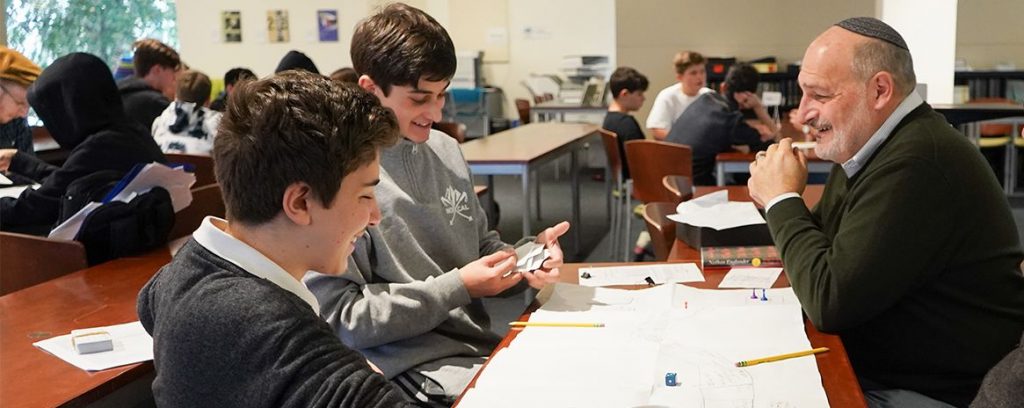Tamar Rabinowitz, Dean of Jewish Studies and Hebrew
In this week’s Torah portion, Lech-Lecha, God speaks for the first time to our ancestor Avraham. The first sentence (Genesis 12:1) draws much attention from the commentators. “God said to Avram: ‘Go from your land (Lech lecha), from your father’s house to the land that I will show you.'” From the outset, in the opening words of “lech lecha,” we hear the earliest charge to move. The Sfat Emet, Reb Yehudah Aryeh Leib Alter, states that the words “lech lecha [mean that] we are forever to be walkers toward that which God shows us, always through renewed perceptions. To be human is to be on the move. Anyone who stands still without renewal will immediately be overruled by nature/routine”
A look at the Hebrew of lech lecha in this sentence, reveals a peculiarity. Without going into too much grammatical detail, the word “lecha” is superfluous. Commentators offer various meanings of this extra article, translating the sentence as “Go for yourself,” “Go by yourself” or “Go to yourself.” There are certainly meaningful explanations for why “Go for yourself” (this was a great “career move” for Abraham) or “Go by yourself” (Abraham, his wife, and nephew needed to go on this mission alone because they needed to start the covenant), are viable translations of “Lech lecha.” However, my favorite of the three is “Go to yourself.”
Avraham was 75-years old when he was asked to start his life over again by leaving his homeland with a new task. Certainly, this was a difficult thing to do – it is never easy to leave one’s loved ones, or the land one has grown attached to. But Avraham’s success in his new mission depended on his ability to reinvent himself and to realize his potential. While Avraham had many difficult tests to overcome in his lifetime, the most important one is the first one we read about in the Torah: “Go to yourself.” Take a journey of self-discovery. Avraham was being asked to leave behind all the things that make us someone else – for it is only by taking a long and lonely journey that we discover who we truly are. “Go to yourself.” Realize what your mission in life is. Recognize your potential. Become YOU. Without this, there would never have been a covenant, a circumcision, the Jewish People.
Avram is further charged this week, “ִה ְתַהֵלּךְ ְלָפנַי וְֶהיֵה ָתִמים. . .” “. . .Walk before me and become tamim” (Genesis 17:1). The journey that began with the prompt of lech lecha is now amplified to a lifetime pursuit. Keep walking, indicates God, not only toward a far-off physical land, but also toward an internal state of being, a state of purity and innocence. God’s directive to Avraham of “walk before me” comes many episodes after the initial lech lecha, after so much experience and confusion and disappointment. God burst into Avraham’s life promising greatness, but what follows is a tangled mess of personal and familial hardships. Between age 75, when Avram hears the initial call to walk, and age 99, when he is again charged to walk, Avraham, in the words of the Ramban, “אובד כשה תועה היה “wandered aimlessly like a lost sheep” (Ramban on Genesis 12:1). And so God reappears to him on the other side of so much wandering with a message both old and new. “Hithalech lifanei”–Keep on walking. Keep hearing the call of lech lecha despite all of the time that has elapsed, despite all of the disappointment that might have accumulated, despite the blurring of the mission that might have developed.
This is a great message for us. Avraham had to take a step back, look at himself, and figure out what he needed to do to fulfill his purpose in life. Abraham was told to go into himself because he needed to stop and turn inward first, to introspect and reflect on his life and who he was. Only after that could he fulfill the second part of the commandment, to go to the Land which God would show him. But that isn’t all – life will not be a smooth line – there will be ups and downs and meandering turns. And the message of this week’s parsha is to keep walking and find wholeness through the brokenness.










